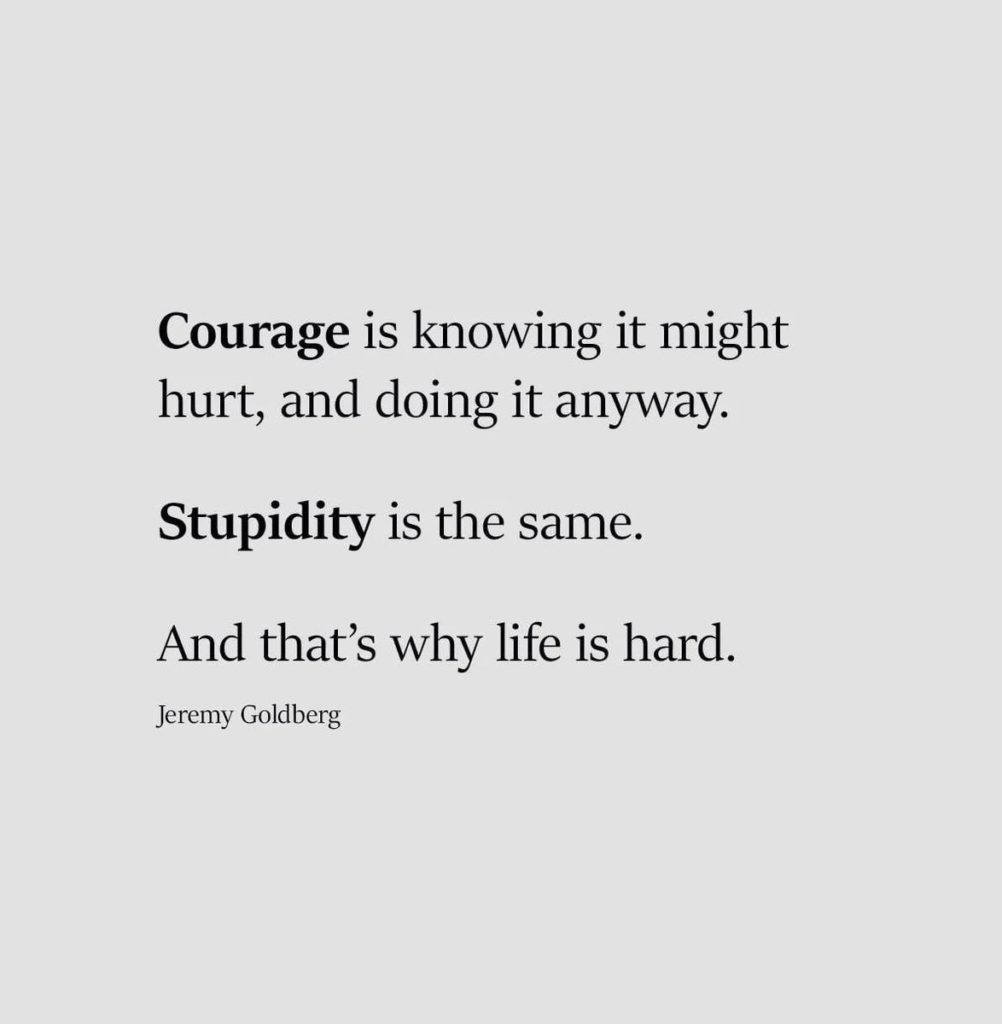let’s try it all over again o/`
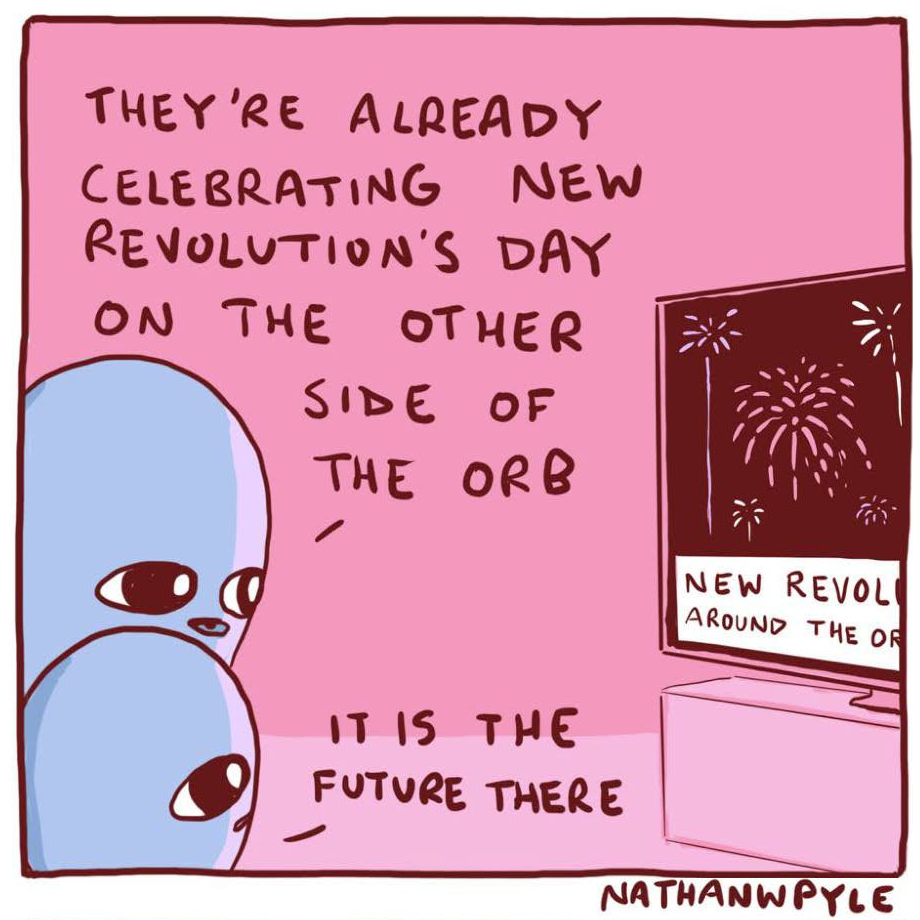
About the web and you and me and all!
let’s try it all over again o/`

Cory Doctorow majorly switched on again : 2024’s public domain is a banger – excerpt below, read his post full here pluralistic.net/2023/12/20/em-oh-you-ess-ee/#sexytimes
First in 1976, and then again in 1998, Congress retroactively extended copyright’s duration by 20 years, for all works, including works whose authors were unknown and long dead, whose proper successors could not be located. Many of these authors were permanently erased from history as every known copy of their works disappeared before they could be brought back into our culture through reproduction, adaptation and re-use. (Copyright is “strict liability,” meaning that even if you pay to clear the rights to a work from someone who has good reason to believe they control those rights, if they’re wrong, you are on the hook as an infringer, and the statutory damages run to six figures.)
Works that are still in our cultural currents 50 or 70 or 90 years after their creation are an infinitesimal fraction of all the works we create as a species. But these works are – by definition – extraordinarily important to our culture. The creators who made these works were able to plunder a rich public domain of still-current works as inputs to their own enduring creations. The slow-motion arson attack on the public domain meant that two generations of creators were denied the public domain that every other creator in the history of the human race had enjoyed.
Sociology is just as much an art form as it is a science. And while sociologists and those in cognate disciplines have long experimented with their writing, the search for new academic forms and practices has acquired new urgency and potentiality. How we write up our research is of paramount importance: our language can be used in experimental and innovative ways to offer nuanced, critical commentary without foreclosing alternative viewpoints, and without excluding others from dialogue.
Sociography offers spaces for new sensibilities and sensitivities; unresolved or incomplete argument; multiple, multi-dimensional and multiplying possibilities: for writing differently. As an intervention in writing the social, our collection works to resist the ideological promotion of dry, dispassionate, and seemingly ‘objective’ discourse, one which has traditionally upheld a set of dominant, privileged voices. And in so doing, our collection explores the potential of new ways of writing the social for both a trans- and post-disciplinary academy and a wider reading public; and seeks forms of writing that do justice to the critical curiosity that animates sociology.
In sum, the challenge embraced by this collection is to argue for and showcase a praxis that activates sociological knowledge and enlarges the sociological imagination.
read on here https://journals.sagepub.com/doi/abs/10.1177/00380261221108842
It’s a bit funny that I feel like I live in the past since I moved to Australia. The gender definitions, the bad coffee, the social segregation, the rampant conservatism with all sides dangling along, building more houses or inheriting their lot while pretending to object… so many moments of total cringe over the past two decades, and now this week brought another one of these moments…
They have upped their anti on the coffee side down here, but the rest is still pretty much strong in traditional hands, and that stridently so on both sides of the political spectrum.
So my lesson learnt is that I have to be even more observant in choosing where to go and who to hang with and what to ask them, as folks really don’t like to be questioned here, especially not about their own cognitive bias.
PS: the word cowardice wanted to be included but I didn’t.
This is an excellent write up on what bothers me the most – the societal rot we’re experiencing is true the world over, and it makes me angry and sad that this could just happen, haphazardly and without any consequences other than the turmoil it created…
The Trump effect has helped make Australia’s democracy more untruthful, cynical, angrily partisan, culturally charged, and politicized.
theatlantic.com/ideas/archive/2022/05/australia-election-donald-trump/629798 • by Nick Bryant
…told in a cake short story :,-D
“Irish and German people offering things”
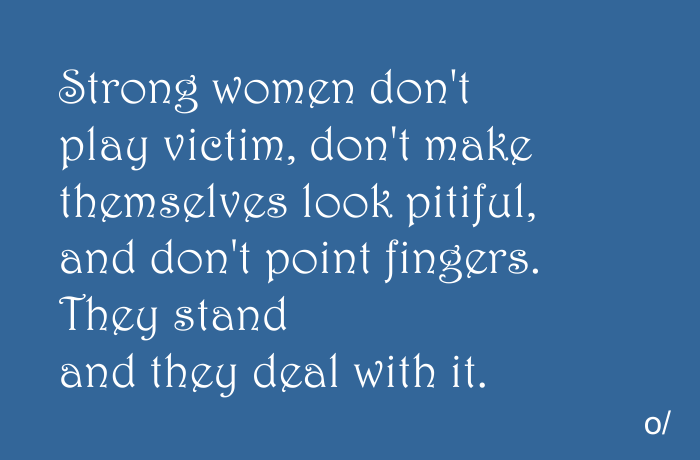
by Danusha Laméris
I’ve been thinking about the way, when you walk down a crowded aisle,
people pull in their legs to let you by. Or how strangers still say “bless you”
when someone sneezes, a leftover
from the Bubonic plague. “Don’t die,” we are saying.
And sometimes, when you spill lemons from your grocery bag, someone else will help you pick them up.
Mostly, we don’t want to harm each other.
We want to be handed our cup of coffee hot, and to say thank you to the person handing it. To smile at them and for them to smile back.
For the waitress to call us honey when she sets down the bowl of clam chowder, and for the driver in the red pick-up truck to let us pass.
We have so little of each other, now. So far from tribe and fire. Only these brief moments of exchange.
What if they are the true dwelling of the holy, these fleeting temples we make together when we say, “Here, have my seat,” “Go ahead — you first,” “I like your hat.”
First published 2019 in Healing the Divide: Poems of Kindness and Connection

there’s not much else you could do

Digital ethics, safeguarding user and data dignity, is the very practice we don’t have enough of, the very concept that isn’t applied enough, the very standard that isn’t adhered to but instead sold out on.
Software and web development used to be a neutral space, but now it is where all the responsibilities lie. Grow up nerds, and look your own realities in the b/eye/te.
Whatever you collect and whatever you publish is also *your* responsibility.
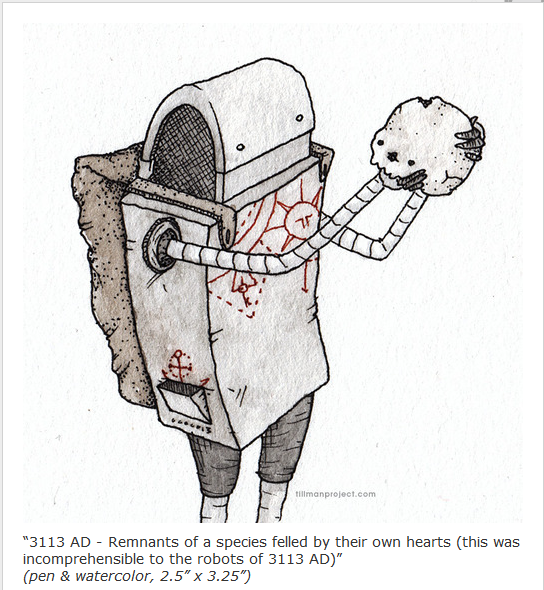
Related: Neveragain.tech – The Tech Pledge
Read more about design that exploits natural cognitive bias and other inclination that sits with UI & UX in this formidable mastery blog…
and more on design ethics: “The Social Dilemma reveals the dark side of persuasive design. So-called dark patterns run rife through social media apps; the previously-mentioned chat bubbles and the ‘pull to refresh feature’ (mirroring a slot machine) are just 2 examples.“
Found this gem during a walk around the neighbour hood
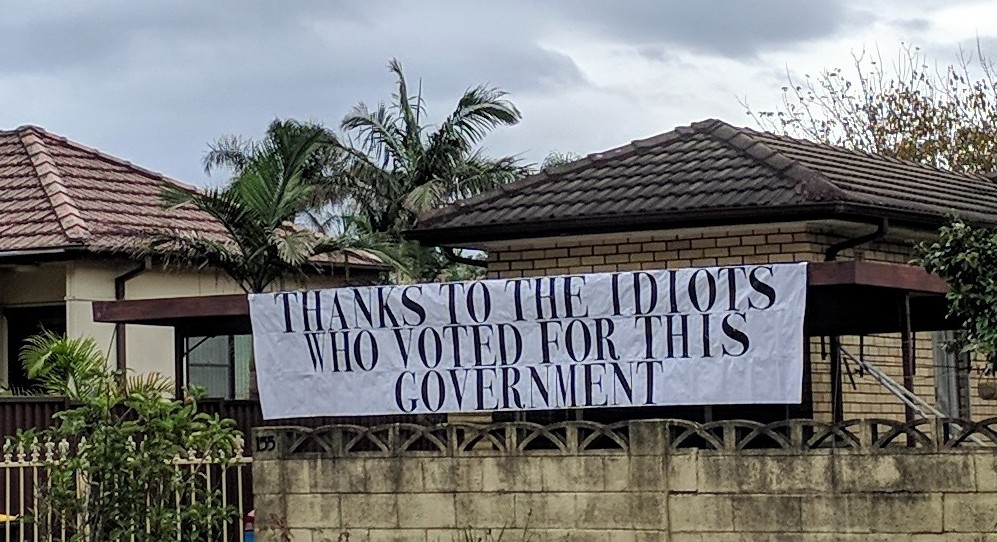
From the marvelous Brainpickings.org
Huxley examines the self-consciousness at the heart of worship, thus echoing Mark Twain’s lament about religion and human egotism :
We love ourselves to the point of idolatry; but we also intensely dislike ourselves — we find ourselves unutterably boring. Correlated with this distaste for the idolatrously worshipped self, there is in all of us a desire, sometimes latent, sometimes conscious and passionately expressed, to escape from the prison of our individuality, an urge to self-transcendence. It is to this urge that we owe mystical theology, spiritual exercises and yoga — to this, too, that we owe alcoholism and drug addiction.
Huxley turns to how drugs have attempted to address this human urge and the interplay of those attempts with religion:
Modern pharmacology has given us a host of new synthetics, but in the field of the naturally occurring mind changers it has made no radical discoveries. All the botanical sedatives, stimulants, vision revealers, happiness promoters and cosmic-consciousness arousers were found out thousands of years ago, before the dawn of history.
In many societies at many levels of civilization attempts have been made to fuse drug intoxication with God-intoxication. In ancient Greece, for example, ethyl alcohol had its place in the established religion. Dionysus, or Bacchus, as he was often called, was a true divinity. His worshipers addressed him as Lusios, “Liberator,” or as Theoinos, “Godwinc.” The latter name telescopes fermented grape juice and the supernatural into a single pentecostal experience. . . . Unfortunately they also receive harm. The blissful experience of self -transcendence which alcohol makes possible has to be paid for, and the price is exorbitantly high.
Huxley argues that while the intuitive solution seems to be to enforce complete prohibition of mind-altering substances, this tends to backfire and “create more evils than it cures,” while also admonishing to the diametric opposite of this black-and-white approach, the “complete toleration and unrestricted availability” of drugs. Peering into the future of biochemistry and pharmacology, he foresees the development of “powerful but nearly harmless drugs,” but also notes that even if these were invented, they’d raise important questions about use and abuse, about whether their availability would make human beings ultimately happier or more miserable. He finds reason for concern in medicine’s history of overprescription of new drugs and writes:
The history of medical fashions, it may be remarked, is at least as grotesque as the history of fashions in women’s hats — at least as grotesque and, since human lives are at stake, considerably more tragic. In the present case, millions of patients who had no real need of the tranquilizers have been given the pills by their doctors and have learned to resort to them in every predicament, however triflingly uncomfortable. This is very bad medicine and, from the pill taker’s point of view, dubious morality and poor sense.
Read the whole article at amazing Popova’s Brainpickings https://www.brainpickings.org/2014/03/25/aldous-huxley-moksha-drugs/
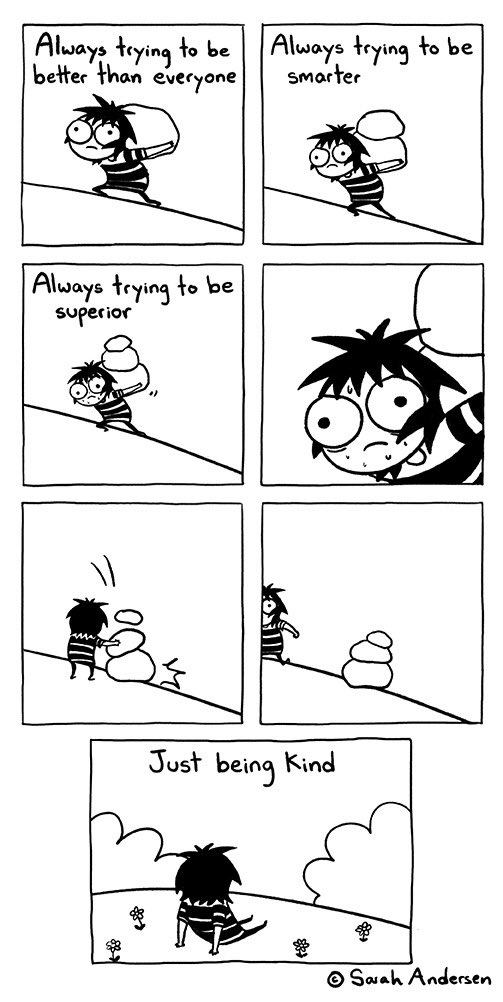
23 words for emotions you have had but could not express…
The realization that each passerby has a life as vivid and complex as your own.
The ambiguous intensity of looking someone in the eye which can feel simultaneously invasive and vulnerable.
The subtle but persistent feeling of being out of place.
The bittersweetness of having arrived in the future, seeing how things turn out, but not being able to tell your past self.
The strange wistfulness of used bookshops.
The unsettling awareness of your own heartbeat.
The eerie, forlorn atmosphere of a place that is usually bustling with people but is now abandoned and quiet.
The inexplicable urge to push people away, even close friends who you really like.
A hypothetical conversation that you compulsively play out in your head.
The amniotic tranquility of being indoors during a thunderstorm.
The frustration of photographing something amazing when thousands of identical photos already exist.
A conversation in which everyone is talking, but nobody is listening.
A sadness that you’ll never be able to know how history will turn out.
A state of exhaustion inspired by acts of senseless violence.
The desire to be struck by disaster – to survive a plane crash, or to lose everything in a fire.
The tendency to give up trying to talk about an experience because people are unable to relate to it.
Frustration with how long it takes to get to know someone.
The feeling of returning home after an immersive trip only to find it fading rapidly from your awareness.
The realization that the plot of your life doesn’t make sense to you anymore.
The frustration of being stuck in just one body that inhabits only one place at a time.
The desire to care less about things.
Weariness with the same old issues that you’ve always had – the same boring flaws and anxieties that you’ve been gnawing on for years.
The awareness of the smallness of your perspective.
8am the next morning, and I am not surprised.
Bewildered yes, but not surprised. This is now the 4th time in a row that a major /global/political event came with particular predictions, but then the exact opposite occurred. I now consider this simply well planned and rolled out info-tactics (warfare?). Or, maybe we’re all just thick af. People who are convinced that they’ll win are set up to take less action, stay complacent. So, well played who ever’s on the other end of those polling strings 😐 I’ll keep the #auspolpress hashtag as a reminder.
There was *a lot* going on in other languages (not English) that I only knew about because of where I live… and all that campaigning was not reported on, at all…
Still, I’m glad it’s over. And ironically, despite my best efforts to vote them out, they’ll now continue to make me better off, as I am -by chance- part of Australia’s privileged caste. So I’ll have to stay smart about how to resocialise the money hereafter.
But for now it seems we have stopped living in a society. We now live in an economy *only*. This darn word will continue to give me grief now for years to come. And oh buoy I will miss society… I always loved her concept

